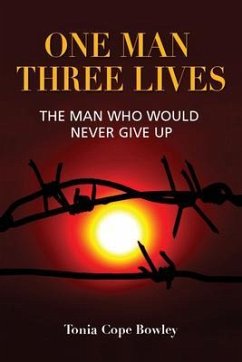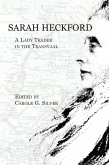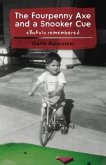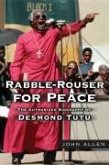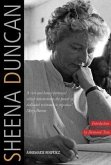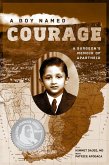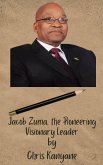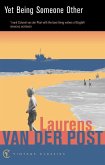Truth is stranger than fiction. This moving story of Frederick Cope, an unusual and well-travelled global citizen, reads like the stories of three different characters. It may seem too far-fetched yet it is true.
This well illustrated book is a colourful biography of a Yorkshireman who overcame incredible obstacles in three countries. He was a man of many talents determined to make a positive contribution to the world. It is in part a social history, covering the years 1890-1979 and highlighting developments over that period. It portrays a broad-minded man of humour and optimism alongside of his determination to seek the Truth. It encourages the reader to 'never give up'.
Fred's times in England, China and South Africa span nearly ninety years. Born in Wakefield, Yorkshire, he was in the first batch of electrical engineers to train in the UK. He fought and was wounded in World War I, worked for the Yorkshire Electric Power Company and then as an industrial consultant. Later, as part-owner of a woollen factory, he invented a new type of yarn that sold internationally and is still available today albeit under a different brand-name. During the post World War I depression the business went into voluntary liquidation. In 1927 he immigrated to China.
He lived and worked in China as an industrial consultant and efficiency engineer with great success during China's most turbulent years. At first he was based in Shanghai before establishing his consultancy office in Hong Kong. He lived on mainland China in Shameen, Canton. As an economist he was intensely interested in world affairs. He wrote for the press (South China Morning Post) and in 1933 published a booklet World Crisis - A Way Out. In 1937 he started a timely news magazine -The Hong Kong Review. Articles in its pages reveal his understanding of the imminent Japanese invasion of China and their intentions. During the Japanese occupation of Canton (from 1938) he spent two years behind Japanese lines, first under house arrest and latterly held in solitary confinement for nine months. His fortunes changed when he was selected as an exchange prisoner to travel on the Tatuta Maru - the very first exchange ship BETWEEN Japan and China - that departed in August 1942 from Shanghai. On the voyage to Lourenco Marques he fell dangerously ill and therefore was not included on the ship Narkunda for the last leg of the journey to England.
Fred found his way to South Africa, where he secured a consultancy job in Johannesburg with the Industrial Development Corporation, but was first sent to a resort in the Drakensberg Mountains to recover. After 2 months he met Ethel Glaister, a hospital matron, and married her at 52, his first marriage. Ethel's farming father died in January 1943 and she inherited one fifth of the farm. After a few years Fred gave up his Johannesburg job and moved to Ethel's home-farm at Van Reenen, Orange Free State, on the Natal border. There, after helping Ethel's mother run Oban Guest Farm, he built and opened an ostrich feather factory. Initially this was successful, until the post World War II depression ruled out the sale of luxury goods. Fred turned to farming. One disastrous drawback followed another but Fred was never defeated. Successively he turned to farming chickens, cattle and sheep, and vegetables. Then a bush fire burnt out the farm and animals. He never gave up. Instead he grew experimental animal feed crops, introduced Brussels sprouts to South Africa then sold the farm and retired at 73. In the end his life-long search for Truth was rewarded.
This is an inspiring memoir for anyone facing challenges in their life and seeking words of wisdom to help pull them through difficult times.
This well illustrated book is a colourful biography of a Yorkshireman who overcame incredible obstacles in three countries. He was a man of many talents determined to make a positive contribution to the world. It is in part a social history, covering the years 1890-1979 and highlighting developments over that period. It portrays a broad-minded man of humour and optimism alongside of his determination to seek the Truth. It encourages the reader to 'never give up'.
Fred's times in England, China and South Africa span nearly ninety years. Born in Wakefield, Yorkshire, he was in the first batch of electrical engineers to train in the UK. He fought and was wounded in World War I, worked for the Yorkshire Electric Power Company and then as an industrial consultant. Later, as part-owner of a woollen factory, he invented a new type of yarn that sold internationally and is still available today albeit under a different brand-name. During the post World War I depression the business went into voluntary liquidation. In 1927 he immigrated to China.
He lived and worked in China as an industrial consultant and efficiency engineer with great success during China's most turbulent years. At first he was based in Shanghai before establishing his consultancy office in Hong Kong. He lived on mainland China in Shameen, Canton. As an economist he was intensely interested in world affairs. He wrote for the press (South China Morning Post) and in 1933 published a booklet World Crisis - A Way Out. In 1937 he started a timely news magazine -The Hong Kong Review. Articles in its pages reveal his understanding of the imminent Japanese invasion of China and their intentions. During the Japanese occupation of Canton (from 1938) he spent two years behind Japanese lines, first under house arrest and latterly held in solitary confinement for nine months. His fortunes changed when he was selected as an exchange prisoner to travel on the Tatuta Maru - the very first exchange ship BETWEEN Japan and China - that departed in August 1942 from Shanghai. On the voyage to Lourenco Marques he fell dangerously ill and therefore was not included on the ship Narkunda for the last leg of the journey to England.
Fred found his way to South Africa, where he secured a consultancy job in Johannesburg with the Industrial Development Corporation, but was first sent to a resort in the Drakensberg Mountains to recover. After 2 months he met Ethel Glaister, a hospital matron, and married her at 52, his first marriage. Ethel's farming father died in January 1943 and she inherited one fifth of the farm. After a few years Fred gave up his Johannesburg job and moved to Ethel's home-farm at Van Reenen, Orange Free State, on the Natal border. There, after helping Ethel's mother run Oban Guest Farm, he built and opened an ostrich feather factory. Initially this was successful, until the post World War II depression ruled out the sale of luxury goods. Fred turned to farming. One disastrous drawback followed another but Fred was never defeated. Successively he turned to farming chickens, cattle and sheep, and vegetables. Then a bush fire burnt out the farm and animals. He never gave up. Instead he grew experimental animal feed crops, introduced Brussels sprouts to South Africa then sold the farm and retired at 73. In the end his life-long search for Truth was rewarded.
This is an inspiring memoir for anyone facing challenges in their life and seeking words of wisdom to help pull them through difficult times.
Dieser Download kann aus rechtlichen Gründen nur mit Rechnungsadresse in A, D ausgeliefert werden.

